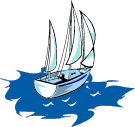

Goals:
1. The students will gain knowledge about the explorer Captain James Cook.
2. The students will compare the island of Kauai - past to present.
3. The students will use critical thinking skills to write an editorial about Cook's
expedition.
Resources/Materials:
1. Pen / pencil
2. Paper
3. Internet access - Captain James Cook sites
- James Cook - British Navigator & Explorer (http://www.bena.com/lucidcafe/library/95oct/jcook.html)
- Biography of Captain James Cook (http://www.pacificcoast.net/~regent/cookbio.html)
- James Cook Biography (http://www.jetcity.com/~kirok/cook.htm)
- Captain Cook (http://www.book.uci.edu/Books/Moon/special_cook.html)
4. World map
Time:
The students will be given one and a half hours to complete this center.
Procedure:
1. The students will be working in groups of two to three people.
2. In these groups, the students will search the Internet for information about Captain
James Cook, the explorer who discovered Kauai and the other Hawaiian Islands.
While they are collecting this information, the students should focus on the path of
Captain Cook's journey to the Hawaiian Islands.
3. The students will learn that Cook was on an expedition to explore the Pacific Ocean.
4. The students will be given a photocopied map of the world. Each group will need to
plot Cook's path during this expedition. When all the groups are finished, the students
will be able to compare and discuss the path that each of them found. This can be
done though a dialogue or discussion.
5. When the students have finished, each student will read the Internet article entitled
Captain Cook (http://www.book.uci.edu/Books/Moon/special_cook.html).
6. In response to this article, the students will each write a newspaper editorial about the
first explorer landing on Kauai. This editorial can be from either an islander's point of
view or Cook's point of view. The teacher will collect these editorials and publish
them in a class newspaper when they are finished.
Assessment:
1. The students need to turn in their editorials so the teacher can assess them according to
the writing rubric and give them feedback. (Criteria for Success = The students will
make no more than five grammatical errors.)
2. The teacher will observe the students and assess them according to the teacher
observation rubric. (Criteria for Success = The students will appear to stay on task all
of the time, and they will demonstrate an understanding of the major concepts.)
Curricular Strands and Major Concepts:
1. Social Studies - history, island transformation, and explorers
2. Language Arts - communication skills, research skills, comparing & contrasting,
writing, and critical thinking
Possible Extension:
1. The students can create their own expedition to an unknown place such as Mars. The
students will need to map out their path to this place.
2. The students could create their own treasure hunts. They would also need to draw a
map for the other students to follow.
3. The students could participate in a simulation activity where Cook meets the islanders
- some of the students would be Cook and his explorers while others would be the
islanders.
Go to The Legendary Menehune
Go to What Really Happens When Volcanoes Erupt?
Go to Schedule of Lessons